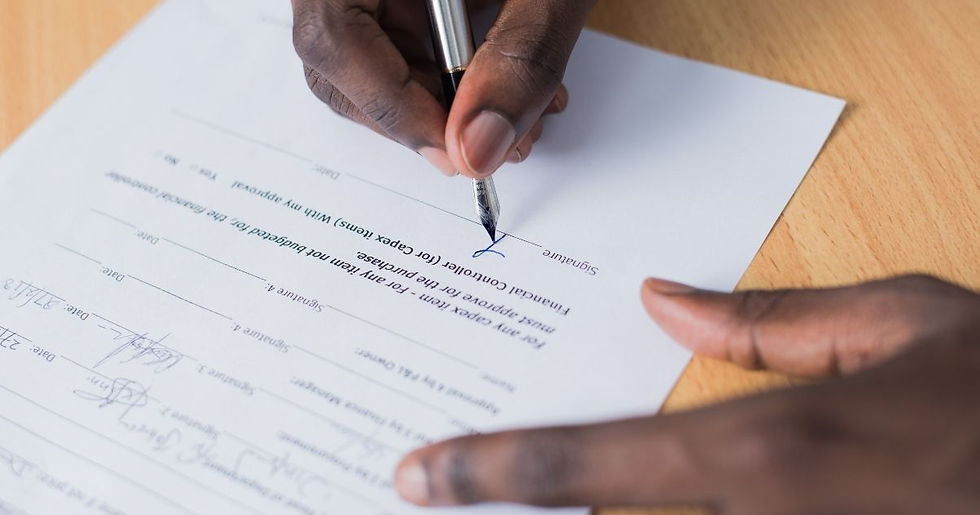The organ donor – post mortem hero
- Britta Rotmann

- Oct 13, 2025
- 3 min read
Updated: Dec 8, 2025
If making a difference has always been a part of your life you will love these statistics:
Organ donation can save 7 lives
Tissue donation can help 50 people, according to the official website of organ donation in South Africa.
And if it has not always been part of who you are, but you want to be a post mortem hero this article is for you too!

I have always loved the thought that my heart will continue to beat for another person. It’s the stuff of tear jerker movies. Pancreas transplants tend not to get the same level of enthusiasm. But any transplant in my view is still a medical marvel.
I have however stepped back a bit from being a hero at all costs and I have decided more than wanting to be an organ donor, I want to die at home. And although organs need a steady blood supply in order to be transplanted, the good news is you can still donate tissue and make a big difference in people’s lives, if like me you prefer to pass away at home.
Organ donation in South Africa – how you help even if you die at home
The opthalmological society of South Africa estimates that the eyesight of 20,000 South Africans can be restored with a cornea transplant. The cornea is not the actual eye, but the transparent front layer. The cornea is fascinating from a transplant perspective because it is the only part of the body with no blood supply. Apparently it gets its oxygen directly from the air and corneas are accepted from all ages.
Other tissues that can be donated are the sclera (dense eye tissue for cancer patients), skin (for burn victims), bone, tendon and cartilage (cancer recovery, arthritis, trauma and other injury) and heart valves. To find out more about donation and how it helps in various ways please visit vitanova.org.za.
Whole bodies can also be donated to medical schools to assist in their medical training. This choice must be registered with whatever university you choose for such a donation.

For inspiration from people who have received transplants you can read some amazing stories on the “tell” website whose mission it is to “end the waiting list by providing transplant education to both the general public and medical sectors”.
When you are ready to be a post-mortem hero, you can sign up at any of the websites already mentioned as well as with the Organ Donor Foundation.

When you do, make sure this information is also given to other people in your life and have a card in your wallet for emergency personnel so that they will make sure your wishes are respected because:
Your post-mortem body – your choice.
All the best
Britta
Meet Britta Rotmann
Britta is an end of life companion doula who shifted from a varied career in law, government, international organisations and NPOs to the more sacred work of being with people at the end of their life. Although her BA, LLB and Masters in Law bring relevant knowledge to the field, it is her ability to ask the tough questions and sit in difficult conversations that is her core competency in this work.
Britta writes about what makes our end of life processes easier so that we can focus on the sacredness of this time. Contact Britta at meerkatphilosophy@gmail.com or read more about her here.







